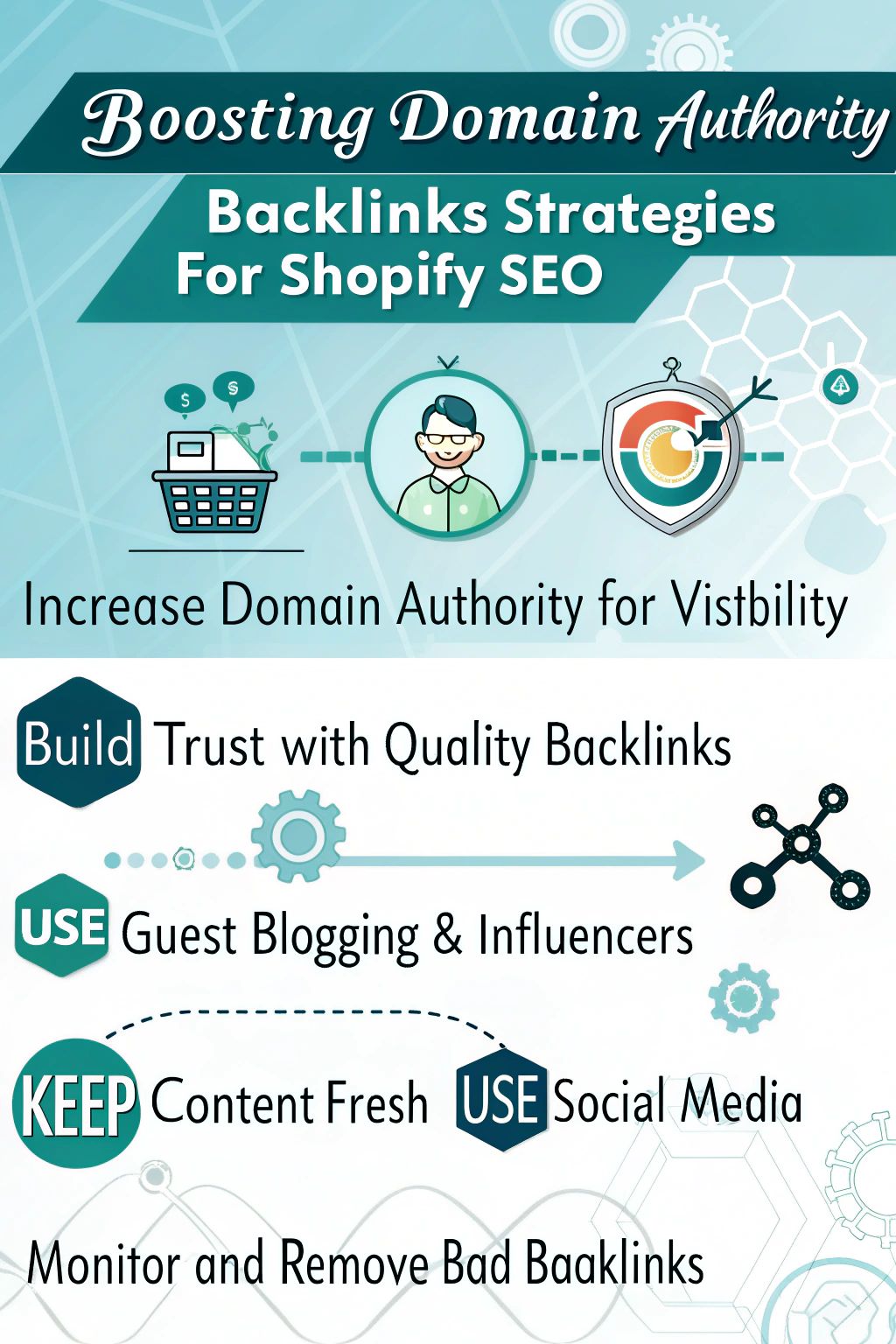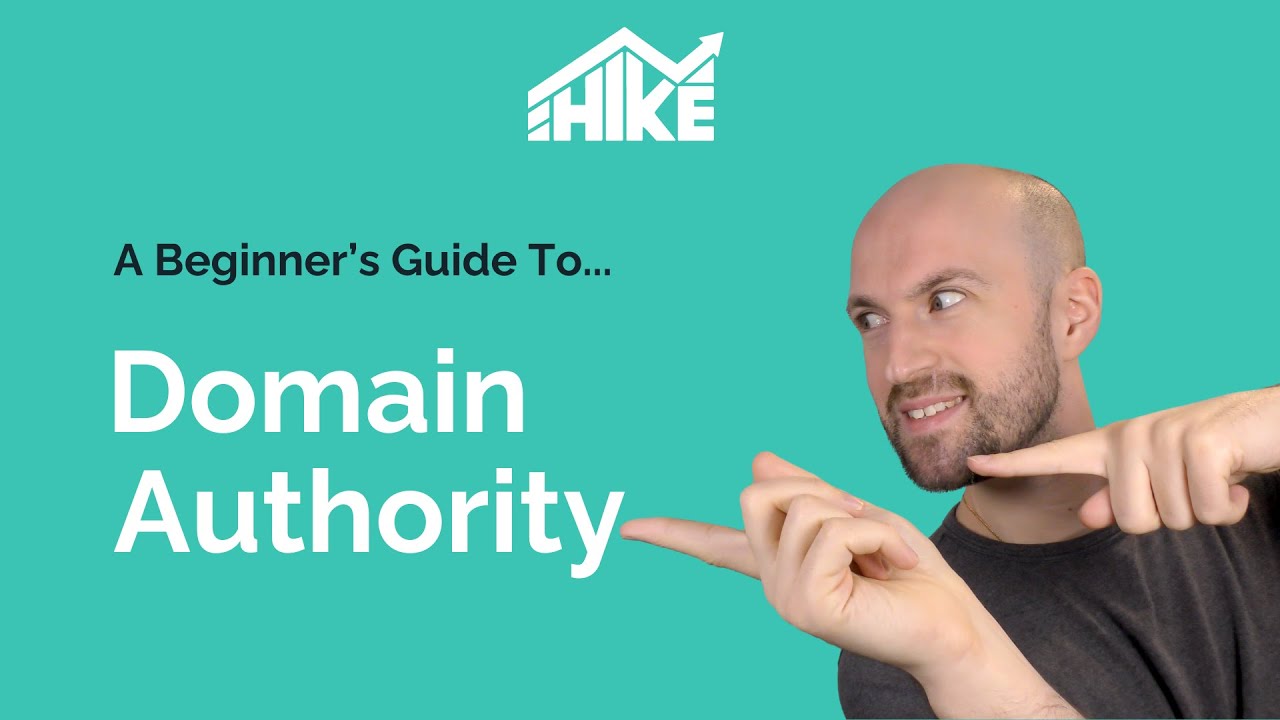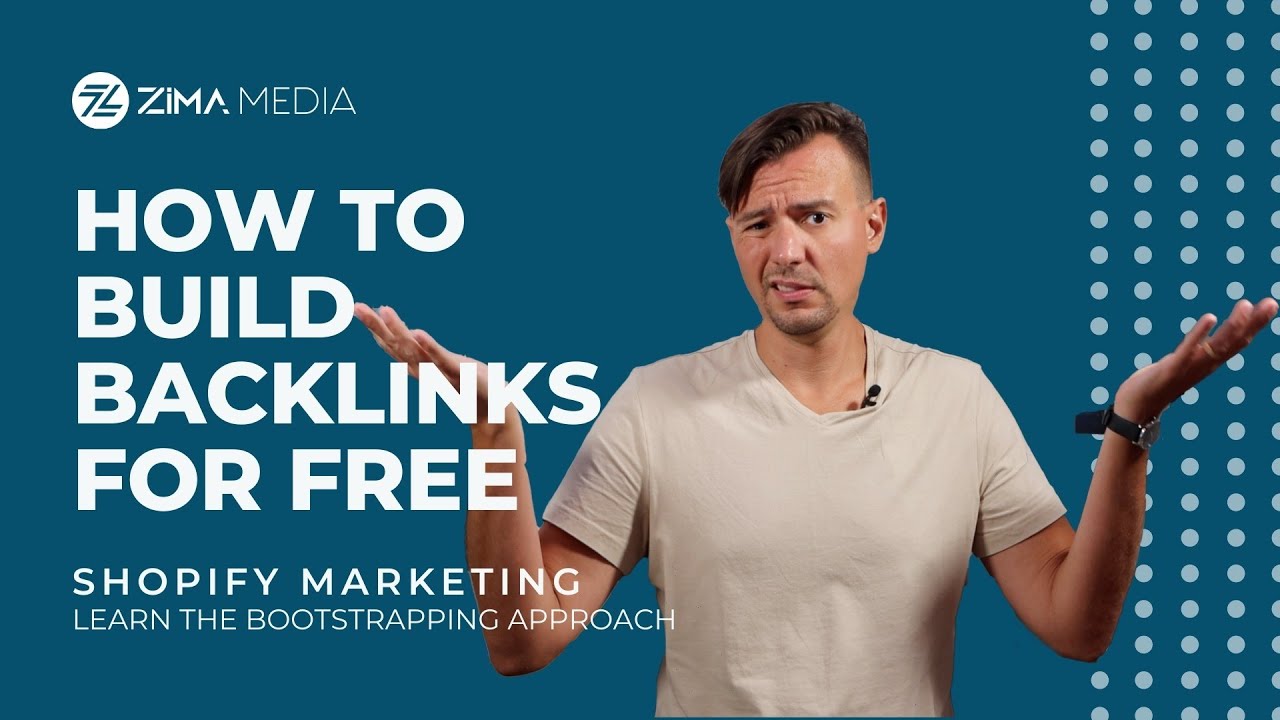Trying to get your Shopify store seen by more people? You’re not alone. Many shop owners struggle to turn search engine users into clients. A big part of the puzzle is boosting your site’s domain authority through smart backlink strategies.
One key thing to know: backlinks from other quality websites can really help your SEO efforts. This post will show you how to get those links and improve your shop’s visibility on platforms like Google Search.
We cover everything from guest blogging to using special tools for tracking link health.
Get ready for more clicks, visitors, and sales!
Key Takeaways
- Domain Authority (DA) shows how well your site might rank on search engines. High DA means more people can find your Shopify store.
- Getting backlinks from other good websites makes your own site seem more trustworthy to search engines. This helps improve your shop’s visibility and sales.
- You can build quality backlinks by guest blogging, working with influencers, fixing broken links on other sites, and checking what successful competitors do.
- Keep your content fresh and interesting. Use social media to get more attention for your shop.
- Always check the health of your backlinks. Remove any bad ones to keep up a strong domain authority for better SEO results.

Understanding Domain Authority and Its Importance for SEO
Domain Authority (DA) gauges the ranking capacity of a site on search engines. This metric, developed by platforms such as Ahrefs and Moz, signifies that a higher DA score increases the visibility of your Shopify store on Google searches, thereby improving traffic and sales.
SEO professionals concentrate on enhancing their site’s DA by garnering backlinks from high-authority websites. These backlinks serve as a testament of trustworthiness, conveying to search engines that your site is reliable and filled with valuable information.
Comprehending DA enables you to direct your link building strategies effectively. Utilise tools like Ahrefs or Moz to monitor the status of your links and identify areas of advancement.
Quality has the upper hand over quantity in terms of backlinks.
Through rigorous effort, I was able to improve the SEO of my own Shopify store. By focusing on creating robust backlinks from credible sites in my niche, I saw an improvement in rankings.
Platforms like Semrush were instrumental in tracking these progress over time.
Key Strategies for Building Quality Backlinks
Building quality backlinks is crucial for boosting your Shopify store’s SEO. Guest blogging on relevant sites, collaborating with influencers, utilising broken link building, and engaging in competitor backlink analysis are effective strategies to enhance your website’s authority with search engines.
Utilising these techniques ensures that your business gains greater visibility and credibility online.
Guest Blogging on Relevant Sites
Guest blogging boosts your Shopify store‘s SEO. It gets more eyes on your brand.
- Find blogs that match your niche. Look for sites related to e-commerce, marketing, and Shopify.
- Reach out with a solid pitch. Explain how your post will add value to their audience.
- Choose topics that you’re an expert in. Share tips on improving online sales, user experience, or product photography.
- Ensure your posts include links back to your Shopify store. Use natural anchor text that fits the content.
- Include images or infographics from your store as examples. This adds visual appeal and shows real-life application.
- Engage with comments on your guest post to show you’re active and care about readers’ thoughts.
- Ask the host blog to share the post on social media for extra exposure.
This approach gets more backlinks to your Shopify store and enhances site traffic and domain authority over time.
Collaborating with Influencers for Content Sharing
After guest blogging, turning to influencers is a smart move. Influencers can spread the word about your Shopify store fast.
- Find influencers who love your products. They should connect with what you sell.
- Send them free samples. This makes it easy for them to talk about your products.
- Ask for honest reviews on their blogs or social media. Honest feedback attracts more viewers.
- Share their content on your social media and website. This shows you value their input.
- Make special discount codes for their followers. It encourages people to buy from your shop.
- Track sales from influencer campaigns. Use tools like Google Analytics to see what works.
- Offer to link back to the influencer’s site or social media pages, helping both of you grow.
- Repeat with more influencers but keep quality in mind over quantity.
Using these steps, collaborating with influencers becomes a strong part of your SEO plan, driving traffic and building backlinks to boost your site’s domain authority.
Utilising Broken Link Building
Moving from collaborating with influencers, let’s focus on using broken link building. This method fixes dead links on websites, adding value to both your site and the website you help. Here’s how to do it for your Shopify store:
- Search for relevant websites in your niche that have broken links. Use tools like Ahrefs or SEMrush. They can find links that don’t work anymore.
- Pick pages that closely match the content you offer on your Shopify site. It’s best if these pages have a lot of visitors.
- Reach out to the website owner with a polite email. Tell them about the broken link and offer your page as a replacement.
- Make sure your suggested page adds real value for their readers. It should fit naturally where the old link was.
- Sometimes, you might need to create new content that perfectly fits the broken link’s topic. This effort pays off by securing a quality backlink.
- Follow up if you don’t hear back after a week or two, but always be respectful and not too pushy.
- Track your backlinks over time to see which ones get fixed and start pointing to your Shopify store.
- Celebrate each new backlink as a win for your site’s SEO health and domain authority.
By fixing other sites’ dead links, you help their visitors and introduce them to your Shopify store at the same time. Simple steps make this strategy work well for both parties involved, leading to better search engine rankings and more traffic to your online shop.
Engaging in Competitor Backlink Analysis
Analysing your competitor’s backlinks provides insights into their link sources, guiding your SEO strategy to reinforce domain authority. The following steps and tools can help you achieve this:
- Identify leading competitors from your sector using search tools like Google to discover sites ranking high for your targeted keywords.
- Opt for SEO tools such as Ahrefs or SEMrush, as these platforms interpret backlink profiles, displaying the origin of links.
- Analyse the volume of your competitors’ backlinks to understand the count you might require for competition.
- Evaluate the quality of their backlinks by searching for links from sites with outstanding domain authority scores.
- Pinpoint recurring sources of backlinks in your industry by finding patterns in competitor profiles.
- Review the types of content that draw in most backlinks for them, such as blog posts or product pages.
- Compile a list of specific sites from where you would want links based on your research.
- Initiate contact with those sites providing a compelling reason why they should link to your store too.
- Contemplate creating improved versions of similar content that these sites may find link-worthy.
- Be wary of suspicious links in competitor profiles and steer clear of such methods in your strategy.
This method, rooted in distinct actions and specific tools, enables Shopify users to devise a more successful link building strategy, directing their efforts effectively within their market sector and safeguarding from low-quality pitfalls detrimental to their site’s SEO performance.
Leveraging Shopify-specific SEO Techniques
Utilising Shopify-specific SEO Techniques entails customising product pages to attract links, generating informative blog content to encourage backlinks, and using Shopify apps for SEO and link building. It’s about tailoring your website towards higher domain authority and enhancing the site’s SEO without delving into intricacies.
Optimising Product Pages for Link Attraction
Making product pages stand out is key. Use clear titles, high-quality images, and detailed descriptions. Include customer reviews and ratings to show trust. This helps get more backlinks to your Shopify store.
For every product, add useful details that answer common questions. Show how it solves problems or why it’s better than others. Share these pages on social media and in emails to catch more eyes.
More visibility means more chances for websites to link back.
Use SEO tools like Ahrefs to find the best keywords for each page. Put these keywords in titles, headings, and descriptions. This makes search engines like Google notice your pages more.
Also, create videos showing products in action. People love watching these before buying. Post them on your product pages and YouTube for extra reach.
By doing all this, you turn your product pages into magnets for links. This boosts your site’s domain authority and brings in more traffic from search engines.
Creating Informative Blog Content to Encourage Backlinks
To get more backlinks, your blog needs good stuff. Imagine making a post that talks about how Shopify users can boost sales. You add tips and tricks and even share stories of success like HawkSEM’s ROI of 4.5 times or OptinMonster boosting leads by 10%.
This kind of content makes others want to link to your site because it’s helpful.
Use simple language and break down complex ideas into easy steps. For example, explain SEO terms using everyday words. Show how adding backlinks to Shopify isn’t just for tech experts but for everyone looking to grow their online shop.
Good content gets shared. When you write posts that solve problems or answer big questions, people notice. They’re likely to include a link in their own blogs or social media, pointing right back at you.
Utilising Shopify Apps for SEO and Link Building
- Shopify apps provide tools to improve your store’s SEO and establish quality backlinks, thereby enhancing domain authority.
- Let’s delve into how these apps can add value to your store:
- SEO Manager: This app offers guidance for on-page optimisation, keyword recommendations, and content enhancement to elevate search rankings.
- Plug in SEO: This app assists in identifying and resolving SEO issues, enhancing meta tags, and refining site speed to enhance ranking potential.
- Smart SEO: This app delivers automated meta tags, sitemap creation, and image enhancement to reinforce your site’s SEO foundation.
- Back in Stock Alerts: By informing customers about restocked products, it encourages them to revisit your site and potentially create backlinks through sharing or referrals.
- Yotpo Reviews: Generating customer feedback can elevate user-generated content and social proof, attracting organic backlinks from satisfied customers or influencers.
These apps seamlessly integrate with your Shopify store, elevating its search visibility and opportunities for link-building.
Monitoring and Analysing Backlink Quality
When tracking backlink health, it’s essential to employ tools for monitoring and analysing backlink quality. Identifying and disavowing bad links is crucial in maintaining a strong domain authority.
Tools for Tracking Backlink Health
- Use Google Search Console to monitor the number of backlinks and track changes over time.
- SEMrush provides a Backlink Audit tool to identify harmful backlinks and assists in disavowing them.
- Ahrefs’ Site Explorer tool offers insight into the domain’s authority score and analyses competitors’ backlink profiles.
- Moz’s Link Explorer provides detailed data on specific backlinks, spam score, and anchor text distribution.
- Majestic SEO’s Backlink History Checker monitors backlink growth patterns and offers historical data for analysis.
- Keep an eye on link health by setting up alerts in tools like Monitor Backlinks to notify about any lost or new backlinks.
- Utilise tools like Linkody to automate the tracking of new and lost backlinks for easier management.
After understanding these tools for tracking backlink health, let’s explore leveraging Shopify-specific SEO techniques.
Identifying and Disavowing Bad Links
Identifying and disavowing bad links are crucial for maintaining a strong domain authority. Here’s how to do it:
- Use Google Search Console to identify low-quality or spammy backlinks pointing to your site.
- Disavow these bad links by submitting a disavow file in your Google Search Console account, indicating the specific URLs you want to disassociate from your site.
- Regularly monitor your backlink profile for any new undesirable links, and take prompt action to disavow them.
- Consider using third-party tools such as Ahrefs or Moz’s Link Explorer to comprehensively analyse and manage your backlink profile.
By actively identifying and disavowing detrimental links, you can safeguard your site’s credibility and enhance its overall SEO performance.
Advanced Tips for Sustaining Domain Authority
Utilise social media strategically to increase the potential of your links. Regularly update and optimise your content to maintain a strong domain authority.
Regular Content Updates and Re-optimisation
Regularly updating your content and re-optimising it is crucial for maintaining a strong online presence. Here are some effective strategies to achieve this:
- Update product descriptions, images, and prices to keep them relevant.
- Refresh blog content by adding new information or insights.
- Review and update keywords to align with current trends and customer needs.
- Monitor website performance and make necessary adjustments to improve user experience.
- Utilise analytics tools to track changes in traffic and engagement, allowing you to adapt your content accordingly.
These simple actions can help maintain the visibility and relevance of your Shopify store in a dynamic online landscape.
Strategic Use of Social Media to Enhance Link Potential
Social media is an effective tool for enhancing your website’s link potential. By posting your content on platforms like Instagram, Facebook, and Twitter, you can improve the likelihood of other websites linking back to your site.
For instance, United Airlines achieved a 52% conversion rate from retargeting ads on YouTube.
To further optimise this potential, connect with influencers in the Shopify community for content sharing and utilise Shopify-specific SEO techniques to enhance product pages and develop informative blog content that encourages backlinks.
Monitoring tools can assist in tracking the quality of these links as well as recognising and disavowing any undesirable links. Keep in mind that HawkSEM has assisted in achieving an average ROI of 4.5 times.
Conclusion
Let’s meet Alex Taylor, an SEO expert with over 10 years in digital marketing. Alex has a degree in Marketing from the University of Toronto and has helped many online stores grow.
He is known for his work on increasing website traffic and sales through smart SEO tactics.
Alex looks at boosting domain authority for Shopify users closely. He says that quality backlinks are like votes for your site. More good votes mean higher authority. This helps your shop show up better in Google searches.
He talks about safety and honesty in getting backlinks too. “Always choose quality over quantity,” he advises. Avoid shortcuts like buying links or using spammy tactics, as these can harm your site’s reputation.
For daily use, Alex suggests always keeping an eye on your backlink profile. Use tools to check which sites link to you and if those links are helping or hurting your SEO efforts.
In weighing pros and cons, he notes that building backlinks takes time but it’s worth it compared to quick fixes that risk penalisation from search engines.
Finally, Taylor gives a thumbs-up for investing effort into earning high-quality backlinks to boost domain authority on Shopify sites. “It ensures long-term success,” he states confidently.
FAQs
1. What is domain authority and why do backlinks still matter for Shopify SEO?
Domain authority is a metric that reflects the power of your website on search engine results pages, based on backlinks. Backlinks are important as they add value to your site, enhancing its visibility and traffic.
2. How can I increase my site’s domain authority?
To boost your site’s domain authority, focus on getting high-quality backlinks from other websites that have good domain scores themselves. This builds a strong link profile for your site and increases its trustworthiness.
3. Are all types of backlinks beneficial in improving my Shopify store’s SEO success?
Not all backlinks are equal! Avoid spam links or links from link farms as these could harm rather than help your store rank higher in search results. Aim for valuable backlinks from reputable sources relevant to your content.
4. What strategies can be used to build backlinks effectively?
There are several ways to get quality backlinks – you could offer guest posts on relevant blogs, use broken link checker tools to identify opportunities or request sites with related content to include a link pointing towards yours.
5. Is there any tool available that helps understand the quantity and quality of our website’s existing backlines?
Yes, tools like Ahref’s Domain Rating provide insights into the number of unique domains linking back to your website along with their respective ratings which aids in understanding the effectiveness of current link-building efforts.
6. Does adding more products or creating more pages automatically enhance my page authority?
While adding new products or pages might attract more visitors initially, it doesn’t necessarily improve page authority… The key lies not just in quantity but also in maintaining high standards of information retrieval ensuring each web page adds value for users.


![SEO for Shopify Masterclass [LIVE STREAM]](https://designful.ca/wp-content/cache/flying-press/69c5340f85df52d96bb3554c42aa542d.jpg)